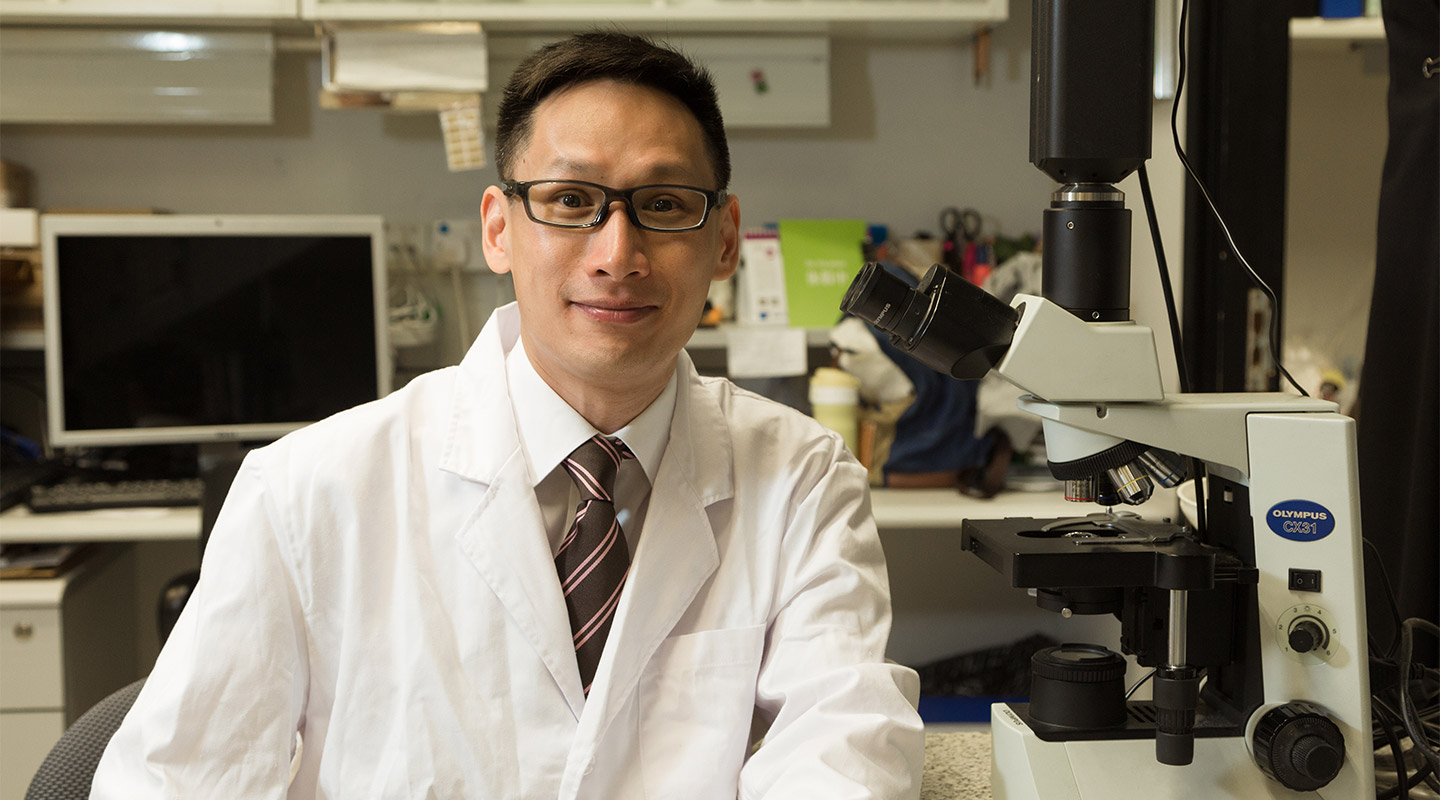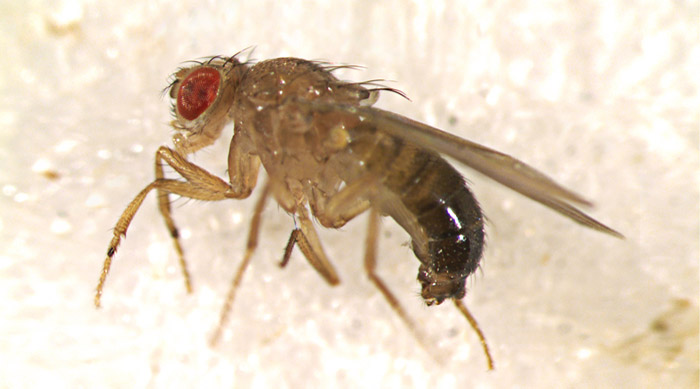Dear readers, With the launch of e-newsletter CUHK in Focus, CUHKUPDates has retired and this site will no longer be updated. To stay abreast of the University’s latest news, please go to https://focus.cuhk.edu.hk. Thank you.
A Steady Step for the Patient: Edwin Chan takes on SCA

Prof. Edwin Chan Ho-yin
School of Life Sciences
It takes a special kind of scientist to devote yourself to a rare disease that has no cure. Most drug companies just move on to more-profitable pastures. But this leaves patients stranded, often in despair.
So Prof. Edwin Chan of CUHK's School of Life Sciences is a champion to sufferers of spinocerebellar ataxia, or SCA. He has identified a specific gene that causes one version of the disease. And he and a partner in Denmark are working on drugs to prevent the onset of the disease altogether.
SCA patients have fully clear and functioning minds, but often have blurred speech and vision. They cannot walk freely due to tremors, because their cerebellum, the part of the brain that governs motor control, is not functioning normally.
They demonstrate many of the same symptoms as people with motor-neuron disease. But SCA kills cells in the brain, while motor-neuron disease targets cells in the limbs. It normally takes a MRI scan and a series of physical tests to diagnose SCA.
SCA is just one of around 6,000 conditions in the world that are classified as “rare diseases,” defined in Europe as those that affect 1 in 2,000 people. They are so rare that Hong Kong – well behind the West in treating them – doesn't even have a definition, and has no system in place for supporting patients.
They are normally hereditary diseases—80% of them are genetic. They are frequently disabling, affecting the patient's entire life, and occasionally degenerative and life-threatening. But there is often no treatment, or even ways to alleviate the symptoms.
There are more than 40 subtypes of SCA. Professor Chan has concentrated on the polyglutamine subgroup of six SCAs, in which stress within the nucleolus, a small part of the nucleus, causes cell death in the neurons of the brain. The main agent in the process is nucleolin, a protein that if it malfunctions causes stress in the brain.
Professor Chan tracked the process to its origin. He identified that nucleolin gets “hijacked” by a certain form of toxic ribonucleic acid, or RNA. The nucleolin does not function properly as a result, ultimately resulting in the death of the cell.
Having identified the process, Professor Chan set about designing a drug to prevent the cell hijack from occurring in the first place. He set about a systematic screening of peptide sequences, and made an educated guess that one of a family of six peptides might work. The peptide acts as a decoy, getting sucked up and hijacked by the RNA instead.
By introducing the peptides into animal cells, Professor Chan tested whether or not they halted the cell death. Two of them proved to be very promising. He then turned to a partner in Denmark, Knud Jensen, a professor of peptide engineering at the University of Copenhagen, to synthesize them.
With Chan designing the peptide and Jensen manufacturing it, they are developing therapeutics that can block that nuclear pathway, and hold the potential for drugs. The pair aim to patent their “invention.”
The whole process of contracting SCA at all is set in motion by an expansion in the patient's DNA, explaining why the problem is genetic.

Professor Chan's work with Professor Jensen will, if successful, yield drugs to treat the polyglutamine subgroup of SCAs: types 1, 2, 3, 6, 7 and 17. Encouragingly, the drug would also apply to a broader group called “polyQ” diseases: those six SCAs, as well as Huntington's disease, dentatorubral-pallidoluysian atrophy or DRPLA, and spinal bulbar muscular atrophy or SBMA.
Three years ago, Professor Chan helped set up a registry for SCA patients in Hong Kong. Across all the subtypes, there are 100 confirmed cases in the city so far – a truly rare disease, afflicting one in 72,400 people. More may come forward since SCA is often misdiagnosed. Globally, SCA afflicts around one in every 25,000 people.
Professor Chan has also focused on another specific subtype known as SCA 40. Via bioinformatic and cellular analysis, he eventually tracked down the gene that was mutating, CCDC88C. He then identified the single permutation within the gene that leads to the deterioration of the cerebellum.
That work is particularly tricky because there is only one family in Hong Kong with SCA 40. The parents of the family died at a very young age, so it is through study of the siblings in the second generation that Professor Chan has accomplished his research.
Professor Chan's work is breaking new ground. He is the first person to study SCA 40. Although he has received inquiries from Spain and Brazil, where doctors believe they have also uncovered SCA 40 cases, the Hong Kong family are the only confirmed sufferers of that specific subtype.
By drawing blood from all the siblings, Professor Chan narrowed down the potential “faulty” gene to a cluster of six. He then synthesized the potential mutant genes in the lab and examined their harmful effects one by one in cultured human cells. After months of filtering, he identified CCDC88C as the root cause.
There is no cure for SCA 40, which coincidentally has its onset when patients are in their 40s; if people carry CCDC88C, they are sure to contract SCA 40. So uncovering the gene raises an ethical issue. It requires genetic counseling to make sure family members of sufferers want to identify whether or not they also carry the gene.
Professor Chan has mixed feelings about his discovery. “From the point of view of scientific discovery it is an accomplishment,” he says. “But during the process, I interacted with the patients and got to feel their frustrations. Even if we know the gene, it will not help the patients who suffer now.”
But he sees the positives of learning you do carry the SCA 40 gene. “If you know you carry the mutation, you can better plan your life,” he says. “You know that you should better spend your time.”
By Alex Frew McMillan
This article was originally published on CUHK Homepage in Jul 2015.